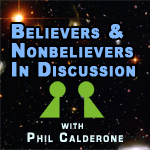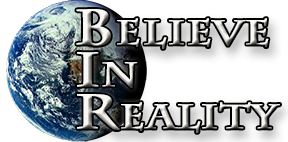What is your aim in philosophy? To show the fly the way out of the fly-bottle. -Ludwig Wittgenstein “Blood from the right chamber of the heart goes to -vena arteriosa – lungs – arteria venosa – left chamber…” -Ibn Nafis (1210-1288 AD) “We likewise discover that there cannot exist any atoms or parts of matter that are of their own nature indivisible.” -Rene Descartes (1596-1650)Philosophy is proto-science, the development of hypotheses and the testing of these by thought experiment using the tool of logic. Its limitation, as the above quotes demonstrate, is that its conclusions cannot be raised to a level of strong confidence since, evidence not being part of the process, there is no way to tell which conclusions are true and which are false. Sometimes it results in a hit, sometimes a miss. This is not to say that philosophy is useless—it is in fact essential—but that its conclusions are preliminary. They are the end of a road that does not continue unless and until evidence becomes available to progress the investigation with physical experimentation. The samples above are both reasonable and logical, however only one is correct. In time, evidence arose and accumulated to elevate one to the level of high theory while the other has been relegated to the dustbin of ideas that didn’t pan out. Ask yourself then: before evidence was found to substantiate or destroy the hypotheses, what degree of confidence should have been stamped upon its plateaued conclusions? Sans evidence can any confidence even be assigned? In other words, can the output of philosophy be considered truth? The answer is no, in of itself. Although it may derive what later becomes learned as truth, until that result is proven by evidential experimentation of positive result, a philosophical conclusion is held in a waiting position, cued up hopefully for the scientific method to take the baton and move forward. But if no runner comes along—no evidence arrives—then conclusions remained cemented at this level they have obtained, able to advance no further. They are refined speculations, educated guesses, reasoned options, even hopes. Of what use then is philosophy? Tremendous use, particularly when evidence has not yet been discovered or when evidence may never be discovered. For the later consider the question, what is “importance?” As an abstract concept, there is no way to discuss this question without thought argument. The outcome therefore remains hypothetical and conceptual. A vase may be important or unimportant for a variety of reasons but its physical properties do not change according to its deemed importance. This is analogous to a truth vs the perception or knowledge of a truth; a truth exists independent of any knowledge or perception of it. Yes, a tree falling alone in a forest does make a sound. In millennium past, philosophy has had a great role in leading us toward truth, though for every truth eventually matured to fact many alternate dead ends were abandoned. We kindly tend to remember the successes and forget the failures. We revere Isaac Newton for his Calculus and Theory of Gravitation while diminishing to trivia his efforts in alchemy and apocalyptic prophesy. Though the knowledge we have gained from the last four hundred years of science has reduced the realm of philosophy—natural philosophy in particular–but there is still much we do not know. (Indeed we don’t even know how much we don’t know, so perhaps philosophy should be considered to have just moved on to new territories.) Thus philosophy will always have an important role. While science continually moves into new areas, it is often philosophy that first helps us imagine beyond the current one*. And if the history and progress of the philosophy-science team has taught us anything it is that there will always be new horizons. However, there is a problem. Among the believent, (those with a propensity to conclude belief, particularly when evidence is scant or nonexistent), philosophy is often used beyond its boundary. When faith is criticized or considered insufficient, deities are often rationalized by argument. Religious apologists lacking physical evidence of the supernatural (by definition) make philosophical arguments to justify not only scriptural teachings but their preferred deity’s existence. This would be fine if only done to the degree of hypothesis without confidence, but they often treat their conclusions as raised to the level of likelihood, even seeing them as “truth.” This is typically an honest error, motivated reasoning being in full bloom, but it is nonetheless incorrect. Problematically, when people group and reinforce such beliefs, the result is a deficit from reality that can result in ideological, educational, political, even physical conflict. A bigger problem: when one can generate a conclusion that is intuitive or desirable, avoiding the discomfort of the unsatisfactory, the unfamiliar or the unanswered, the search for knowledge stops and sometimes inconvenient evidence is suppressed. This is common because evolution has sculpted us to be intuitive. Intuition is a quick-decision neurological shortcut that enhanced our survival in an environment where there was often no time for slow, deliberate consideration. Infinities, time dilation, “nothing” before the Big Bang do not make intuitive sense yet they have non-supernatural explanations. But settling on a deity explanation, fanciful and teleological, is intuitive and comfortable. So use philosophy wisely. Value its contribution in the past, present and future. But be aware of its limits and our bias to use it beyond its ken. If truth is what you’re after, philosophy is just the first step. *Science does not progress only by the philosophical generation of hypothesis. Given the knowledge base we’re standing on now and the technology available, much (most?) of new science is investigating questions that previous work exposed. Just ask anyone who is involved with a planetary exploration project; the backlog of data to be analyzed is monstrous, not even including the reconsideration/revaluation that future findings will trigger. Almost everything we learn generates exciting new questions. Mathematics too is a field that proposes and generates new horizons, particularly in cosmology.

BNB19 Riverside Interfaith Council meets Inland Empire Atheists and Agnostics
The Riverside Interfaith Council meets with the Inland Empire Atheists and Agnostics for a friendly, ear-opening conversation at a local coffee house. (This post under


